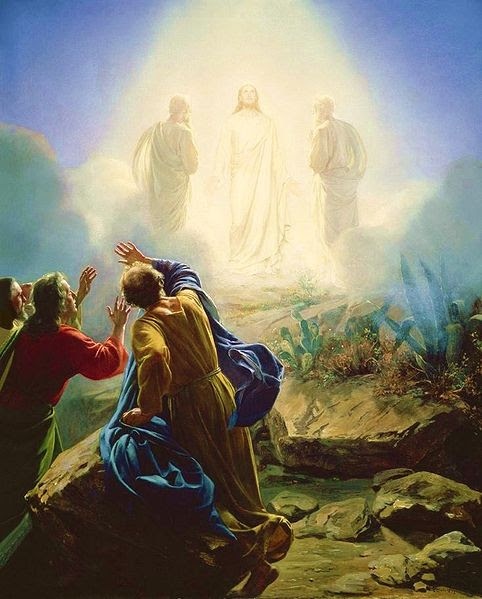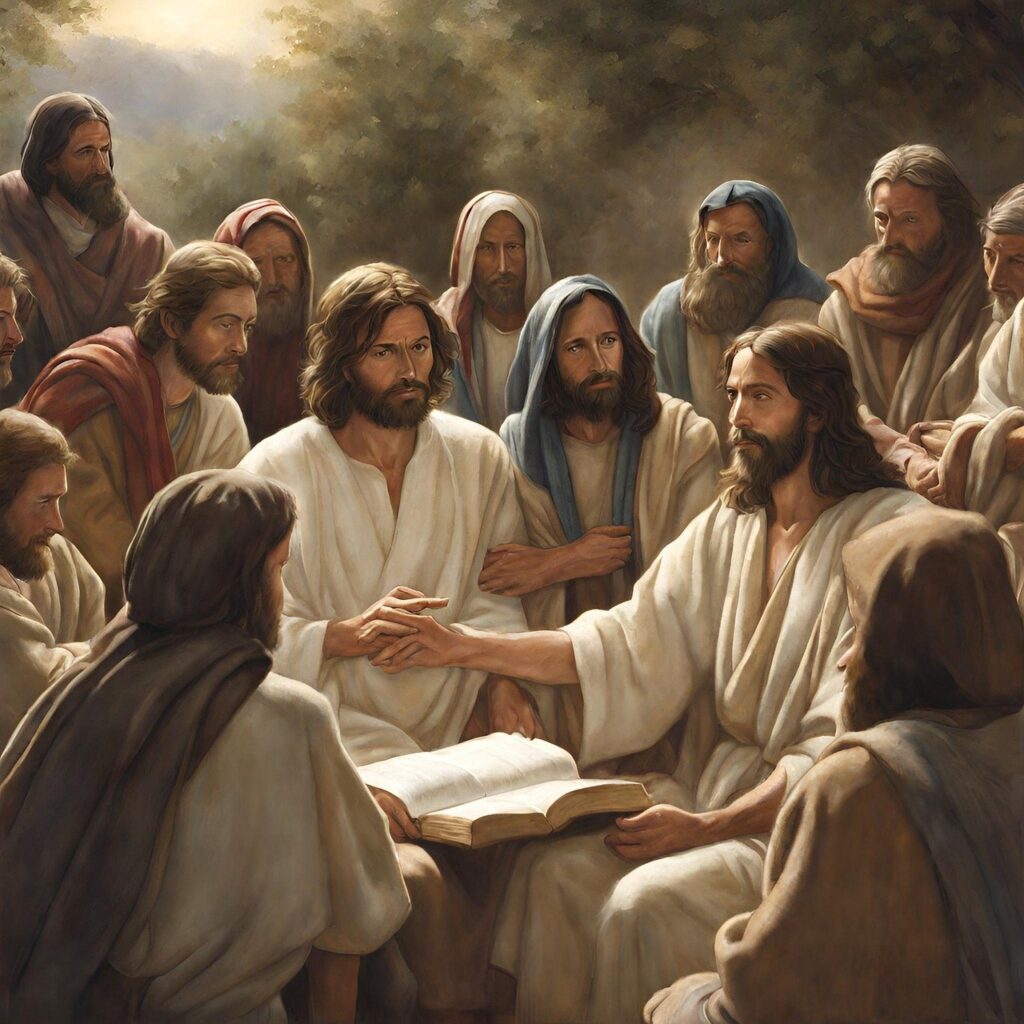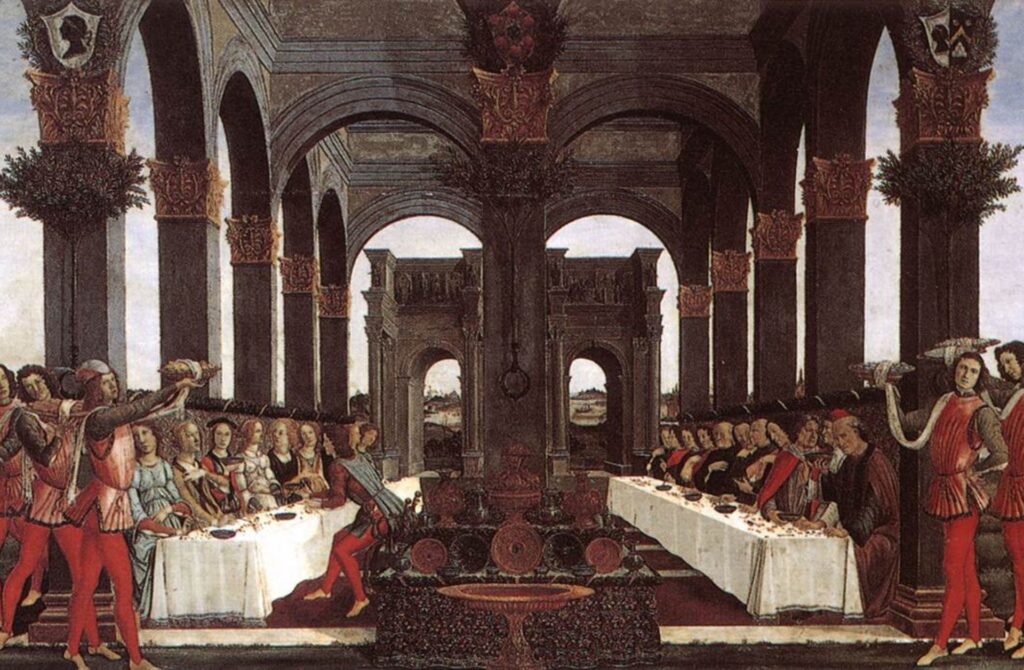Gospel of Luke 9-14 Overview

The Feeding of the Five Thousand, Send the Seventy-Two, The Lord’s Prayer, Parable of the Rich Fool, Parable of the Mustard Seed and Great Banquet
Gospel of Luke Chapters 9-14 Overview. In Luke chapters 9 through 14, Jesus intensifies His teachings and actions, preparing His disciples for His mission and eventual crucifixion. In Chapter 9, He sends out the Twelve, performs miracles, predicts His death, and emphasizes the cost of following Him. Chapters 10 and 11 highlight the sending of the 72 disciples, the parable of the Good Samaritan, and instructions on prayer, showing God’s mercy and the need for persistent faith.
In Chapter 12, Jesus warns against hypocrisy, greed, and anxiety, urging readiness for His return. Chapter 13 contains calls to repentance, the parable of the barren fig tree, and teachings on God’s kingdom. Finally, in Chapter 14, Jesus emphasizes humility, the cost of discipleship, and God’s invitation to all, challenging followers to commit fully to His call.
Gospel of Luke 9-14 Overview
——————–

Luke Chapter 9 marks a critical point in Jesus’ ministry, where His identity as the Messiah is more fully revealed, and He begins to teach His disciples about the cost of following Him. Through miraculous acts, profound teachings, and personal challenges to His followers, Jesus emphasizes that true discipleship requires faith, humility, and a willingness to embrace both His glory and His suffering.
- Jesus’ Identity and Mission: The chapter clarifies Jesus’ role as the Messiah who will suffer, die, and rise again, and it prepares His disciples for this reality.
- Faith and Discipleship: Faith is central to the power of ministry, and true discipleship requires self-denial, carrying one’s cross, and total commitment to Jesus.
- The Glory and Sacrifice of Jesus: The Transfiguration reveals Jesus’ divine glory, while His predictions of death highlight the sacrificial nature of His mission.
- True Greatness: Jesus redefines greatness as humility and service, challenging worldly concepts of power and status.

Luke Chapter 10 contains key teachings and events in Jesus’ ministry, focusing on discipleship, mission, and love for others. It highlights themes such as the responsibility of sharing the gospel, the joy of serving God, the importance of love for one’s neighbor, and listening to Jesus. Luke is emphasizing those to live out their faith by proclaiming the kingdom, showing mercy to others, and ensuring that their relationship with Jesus remains at the center of their lives.
- The Mission of Discipleship: Jesus sends out His followers to proclaim the kingdom of God, highlighting that discipleship involves active participation in spreading the gospel. There is also a sense of urgency and reliance on God’s provision.
- Judgment and Responsibility: Greater knowledge of God’s truth brings greater responsibility. The rejection of God’s message, as seen in certain towns, leads to greater judgment.
- True Joy in Salvation: While spiritual power is significant, the true joy of discipleship lies in the assurance of salvation and eternal life with God.
- Humility and Revelation: God reveals His truth to the humble and childlike, not to the proud or those who rely on their own wisdom. Jesus celebrates the accessibility of God’s kingdom to those with open hearts.
- The Call to Love Your Neighbor: The parable of the Good Samaritan illustrates that love for one’s neighbor extends beyond cultural or religious boundaries. Compassion and mercy are central to living out God’s command to love others.
- The Priority of Being with Jesus: In the story of Martha and Mary, Jesus teaches that the most important aspect of discipleship is being present with Him, listening to His Word, and cultivating a deep relationship with Him.

Luke Chapter 11 is a powerful call to a life of prayer, faith, and spiritual discernment. Jesus teaches His disciples to pray persistently, live with open hearts to God’s truth, and avoid the dangers of hypocrisy. The chapter also underscores the reality of spiritual warfare, the need for inner transformation, and the urgency of responding to Jesus’ message before it is too late.
- Prayer and Persistence: Jesus emphasizes the importance of persistent prayer, trust in God’s goodness, and the power of the Holy Spirit to work in believers lives.
- Spiritual Warfare and the Kingdom of God: Jesus’ casting out of demons and His teachings about spiritual blindness reveal the ongoing battle between God’s kingdom and the forces of evil. Neutrality in this spiritual battle is not possible – people must choose to follow Jesus or remain vulnerable to darkness.
- The Dangers of Hypocrisy: Jesus condemns religious leaders who focus on external observance while neglecting the core principles of God’s law. True faith requires both inward purity and outward justice.
- Judgment and Repentance: Jesus calls for repentance, warning that rejection of His message leads to judgment. He contrasts the willingness of the people of Nineveh and the Queen of Sheba to seek God with the hardness of heart in His own generation.

Luke Chapter 12 is a rich and varied section of the Gospel of Luke, containing teachings of Jesus that touch on several important themes, including warnings, encouragement, and instruction on how to live in light of God’s Kingdom. This chapter is about aligning one’s priorities with God’s Kingdom, trusting in His care, and living with a sense of spiritual preparedness.
- Hypocrisy vs. Truthfulness: Jesus warns against living a double life, emphasizing that what is hidden will be revealed.
- Fear and Trust in God: We are called to fear God more than people and trust in His care and provision.
- Eternal Perspective: Jesus repeatedly points to the importance of focusing on eternal treasures rather than earthly wealth or concerns.
- Faithfulness and Readiness: Jesus calls His followers to live with a sense of readiness and faithfulness, always prepared for His return.
- Division for the Sake of the Gospel: Following Jesus may cause division, even within families, as people are confronted with the choice to accept or reject His message.

Luke Chapter 13 contains several important teachings and parables from Jesus that focus on repentance, the patience and judgment of God, the nature of the Kingdom of God, and the need to enter God’s Kingdom with sincere faith and transformed lives.
- Repentance and Judgment: Jesus consistently calls for repentance, emphasizing that time is limited, and judgment will come for those who do not turn back to God.
- Fruitfulness: The importance of living a life that reflects genuine faith and repentance is illustrated through the parable of the fig tree.
- Compassion and Legalism: Jesus challenges religious leaders who prioritize rules over mercy, particularly in His healing on the Sabbath.
- The Kingdom of God: Jesus’ parables describe the Kingdom as something that starts small but grows significantly, affecting everything around it.
- Salvation’s Urgency: Entering the Kingdom of God requires personal decision and effort, as not everyone who assumes they are part of it will be accepted.

Luke Chapter 14 contains several teachings and parables of Jesus. The central themes of this chapter include humility, the cost of discipleship, and God’s invitation to salvation. This chapter challenges readers to examine their priorities, their response to God’s invitation, and their willingness to commit fully to discipleship.
- Humility: Jesus emphasizes the importance of humility in both social interactions and spiritual life.
- God’s Inclusive Invitation: The invitation to the kingdom of God is extended to all, especially those society often overlooks.
- Cost of Discipleship: Following Jesus requires full commitment and may demand sacrifices, including personal relationships and comfort.
- Faithfulness: Disciples must remain faithful and effective in their mission, like salt retaining its flavor.
You must be logged in to post a comment.